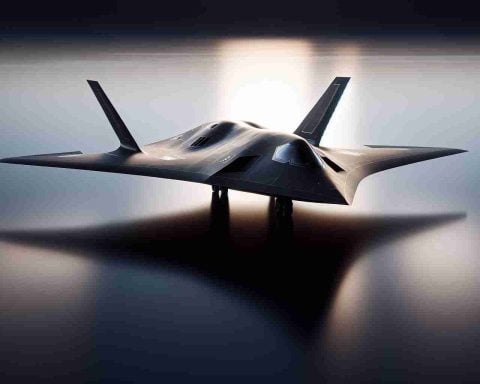Concerns regarding possible corruption have led the U.S. Department of Justice to seek information from Saab North America about the Brazilian Air Force’s acquisition of the F-39 Gripen fighter jets in 2014. This deal, which included 36 jets at a total cost of $5.4 billion, has been under investigation in Brazil due to allegations of misconduct related to the procurement process. Saab has asserted that previous inquiries in Brazil and Sweden concluded without any evidence of wrongdoing directed at the company.
In light of the U.S. request, Saab has acknowledged receiving a subpoena and has committed to cooperating fully with the authorities. The investigation follows claims made by Brazilian prosecutors in 2016 that Luiz Inácio “Lula” da Silva, the former and current President of Brazil, had improperly influenced the bidding process in favor of Saab. Lula has vehemently denied these allegations, asserting they are politically motivated.
The scrutiny surrounding this situation has impacted Saab’s financial market performance, resulting in a notable decline in stock value as investors reacted to the uncertainties of the legal inquiries.
The Brazilian Air Force opted for the Gripen to enhance its air defense capabilities, replacing older models, and the partnership enables local production of some aircraft components, stimulating Brazil’s aviation sector through technology transfer efforts. Recently, the Brazilian Air Force received its eighth F-39 Gripen, marking a significant milestone in this procurement journey.
Corruption Investigations and Their Impact on National Defense Contracts
The intersection between defense procurement and allegations of corruption can have profound effects on individuals, communities, and nations. The recent investigation into the Brazilian Air Force’s acquisition of the F-39 Gripen fighter jets from Saab North America illustrates just how intertwined these issues can be.
Economic Implications
The $5.4 billion deal between Brazil and Saab for 36 Gripen jets was expected to bolster Brazil’s defense capabilities and invigorate its aviation sector through local production and technology transfer. However, the shadow of corruption allegations has cast a pall over the economic optimism surrounding this deal. The stock value of Saab has witnessed significant fluctuations as investors respond to the uncertainty generated by ongoing investigations. A decline in shareholder confidence can lead to broader economic ramifications, impacting jobs and local economies reliant on defense contracts.
Moreover, if the allegations lead to legal consequences or a significant overhaul of the defense procurement process, the resulting delays may hinder Brazil’s military capabilities at a time when national security could be under scrutiny.
Community and Social Effects
At the community level, the implications of corruption investigations reach beyond mere financial metrics. Local businesses that depend on defense contracts for their livelihood may find themselves in jeopardy if substantial cuts happen in defense spending or if contracts are delayed due to investigations. This can lead to layoffs, reduced community services, and an overall chilling effect on economic vitality in regions that support industrial defense sectors.
In Brazil, the Gripen program was touted as a means to promote technological innovation and create jobs. Should the investigations lead to repercussions for Saab or result in a halt to future deals, communities expecting growth in high-tech jobs and investment might face disappointment—further fueling societal unrest or skepticism regarding government integrity.
Controversies and Political Ramifications
The allegations against former President Luiz Inácio “Lula” da Silva add yet another layer of complexity. Lula, currently in a political comeback, has firmly denied claims of wrongdoing, characterizing these accusations as politically motivated. This controversy could fracture political alliances and exacerbate divisions within Brazil, as supporters and opponents of Lula engage in a heated debate about accountability and transparency in governance.
The overall climate raises crucial questions about the integrity of defense procurement processes not only in Brazil but globally. In many countries, defense acquisitions are often fraught with concerns regarding favoritism and corruption. A failure to address these issues can lead to widespread disillusionment with government institutions, undermining public trust.
International Perspective
The investigations are not limited to Brazil; the involvement of the U.S. Department of Justice underlines that defense procurement issues can have international repercussions. Other nations observing the outcomes may reassess their own defense contracts and procurement strategies, potentially leading to a more stringent scrutiny of similar deals worldwide. The results of the Brazilian inquiry could serve as a cautionary tale for countries navigating complex defense acquisition landscapes, reinforcing the necessity for transparent and robust oversight mechanisms.
In conclusion, the ongoing scrutiny surrounding the Gripen deal highlights the intricate web of economic, social, and political impacts stemming from corruption investigations in defense procurement. As Brazil continues to navigate this challenging terrain, the ramifications will not only shape the future of its air force but also its social fabric and political landscape. For further reading on issues concerning defense procurement and transparency, visit Transparency International.
The article has been updated: 2024-11-03 13:58
– Reuters – A leading news organization providing in-depth reporting and analysis on global events, including business and government investigations.
– Bloomberg – A global business and financial news provider, offering insights into market trends and regulatory actions affecting industries.
– The Wall Street Journal – An influential publication that covers business, economic, and legal news, including details on corporate dealings and government probes.
– Financial Times – A renowned international business newspaper, offering coverage on financial news, investigations, and international business affairs.
– BBC News – A comprehensive news source providing updates and analysis on significant global news stories, including corporate and governmental investigations.
– The New York Times – A major news outlet known for its extensive coverage of national and international news, including legal issues and corporate matters.
– CNBC – A leading business news network covering breaking news stories related to finance, economics, and government investigations.
– Defense News – A publication focusing on defense industry news, including military contracts and investigations related to defense companies.
– Reuters Aerospace & Defense – A dedicated section of Reuters that covers news specifically related to the aerospace and defense industries and relevant investigations.
– Politico – A news organization that specializes in politics and policy, providing insights into governmental actions and investigations relevant to the defense sector.
The article has been updated: 2024-11-06 16:28
What is the focus of the U.S. Justice Department’s investigation into Saab North America regarding the Brazilian fighter jet deal?
The U.S. Justice Department is investigating Saab North America for potential violations related to the sale of fighter jets to Brazil. The probe is likely examining whether there were any corrupt practices, improper disclosures, or violations of U.S. export control laws in the negotiation and completion of this defense contract.














